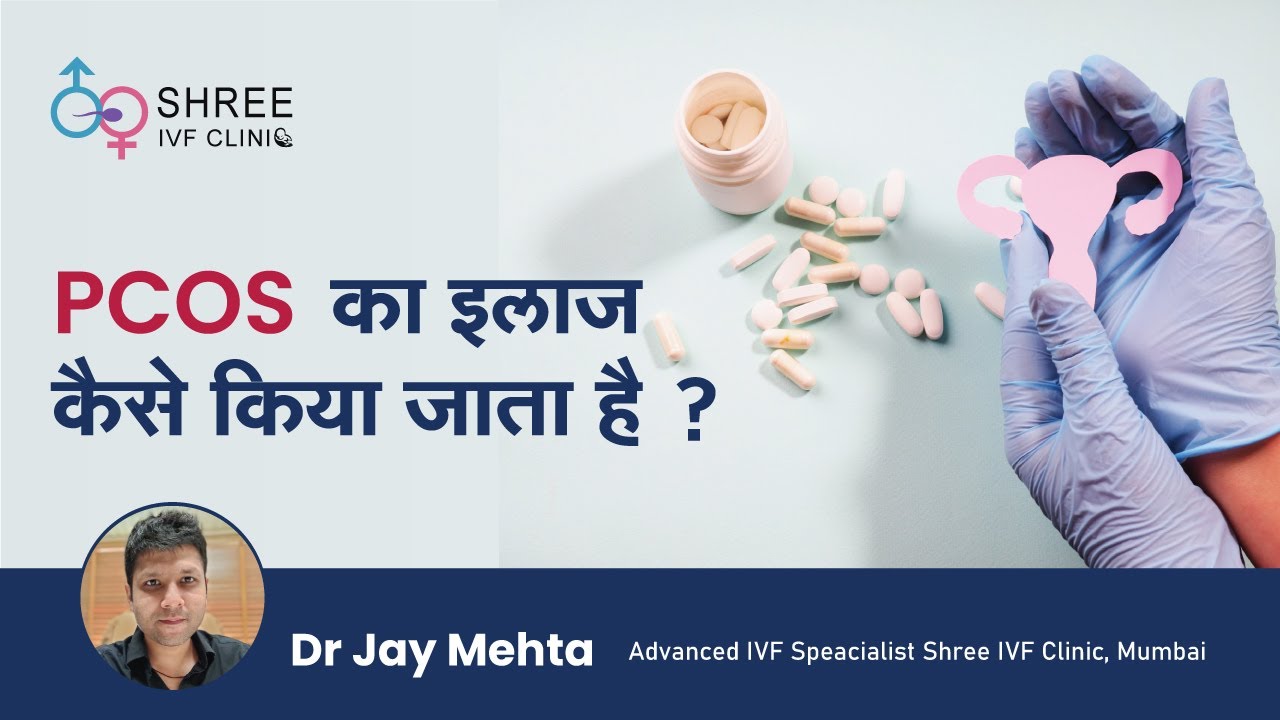How to get Pregnant with PCOS?
UPDATED ON 15th AUG. 2023
AUTHOR
Dr Jay Mehta
Scientific Director & IVF Specialist with 10+ years of experience
TREATMENT
CONDITION
GET IN TOUCH ON
The inability to conceive prompts a doctor to diagnose polycystic ovary syndrome (PCOS), a hormonal disease affecting more than simply fertility. This is due to the fact that it is a prevalent and curable cause of female infertility.
Developing polycystic ovary syndrome (PCOS) does not prevent pregnancy. It might be more challenging, and you could require more assistance.
To reduce the severity of PCOS symptoms and improve your chances of conceiving a healthy baby, you may do several things on your own or with medical help.
Women with PCOS must take certain precautions as women without PCOS while trying to conceive.
Keep your Weight in Check
Although many women with PCOS are underweight, being overweight has been connected to the disorder.
However, decreasing weight may help you conceive and minimize other PCOS symptoms if you are overweight.
Walking may be used as a kind of everyday exercise. You should consider using a standing desk if you’re working for a long time without stopping.
As a bonus, increasing your muscle mass may reduce PCOS symptoms and enhance your overall.
Also Read : The difference between PCOD & PCOS
PCOS, Exercise, and Dietary habits
People with PCOS should make a concerted effort to eat well. This is because their bodies have a harder time regulating insulin, contributing to the increased risk of being overweight.
Can PCOS sufferers benefit from any particular food plan? It’s debatable whether or not that is true.
While some research suggests that restricting carbohydrates may help with polycystic ovary syndrome (PCOS), other studies have not shown this to be the case.
The most critical factor is consuming a diet high in protein and low in sugary foods. To be safe, it’s essential to stay away from processed and fast meals.
It has also been shown that regular exercising might help alleviate PCOS symptoms. One research found that a healthy diet and frequent vigorous exercise significantly increased the regularity of menstrual cycles by 50%.
It is unclear if a healthy diet and regular exercise would improve fertility. However, maintaining a healthy lifestyle may improve the efficacy of fertility treatments, and it will unquestionably improve your quality of life.
Also Read : How PCOS affects pregnancy?
Medications
Having PCOS may cause an increase in the production of both testosterone and estrogen. Both high and low levels of these hormones might make it difficult to conceive.
Some hormone imbalances may be treated with prescription medicine, which your doctor may prescribe.
In cases of polycystic ovary syndrome, medications that may aid in conception include:
- Metformin for insulin regulation.
- Clomid, or clomiphene citrate, is used to regulate estrogen levels in the body.
- Contraceptives are used to regulate the levels of the hormones estrogen and testosterone (before commencing fertility therapy).
- Fertility drugs to stimulate the ovaries to release more eggs.
Procedures for Fertility
IVF (in vitro fertilization) is the next step if gonadotropins fail. IVF is not anything new to you.
Ovarian stimulation includes injectable fertility medicines to increase the number of healthy eggs produced by the ovaries. A process called egg retrieval is used to extract the eggs from the ovaries.
And then, the eggs and sperm go into Petri plates. There is hope that the sperm will fertilize some eggs. When the fertilized eggs have been divided and grown for around five days, one or two are placed in the uterus.
Embryo transfer describes this kind of surgical treatment. The success of the cycle may be determined by taking a pregnancy test after two weeks.
Also Read : Best age to get pregnant with PCOS
Using an Egg Donor
It’s rare for a woman with PCOS to need an egg donor unless she’s dealing with other reproductive concerns, such as elderly age.
However, those who have had surgical treatments such as ovarian drilling or ovarian wedge resection to alleviate polycystic ovary syndrome (PCOS) may have diminished ovarian reserves.
The use of a donor egg might be required here. Because of this, PCOS patients should not undergo surgical therapy.

5,140+
Google Reviews
397K+
subscribers
” Every individual and couple’s journey is unique, and
finding the right solutions tailored to their specific
circumstances can make all the difference “
PCOS and the Likelihood of Becoming Pregnant
PCOS medication may be all needed if you’re attempting to conceive. 80% of women with PCOS who took clomiphene citrate ovulated, according to the research. Half of these women became pregnant within six menstrual cycles.
If fertility drugs aren’t working, your Gynaecologist may suggest in vitro fertilization. IVF increases a woman’s probability of becoming pregnant with PCOS from 20 to 40%.
Pregnancy rates are lower for women aged 35 and over, as well as for overweight women.
Conclusion
Having PCOS doesn’t mean you can’t have a baby. PCOS symptoms may be managed with diet, exercise, and medication, but it is essential that you maintain healthy body weight and blood sugar levels.
PCOS doesn’t prevent pregnancy. It’s doable; however, it would need more time and work.
Consult fertility specialist, Dr Jay Mehta about how to treat PCOS, restore regular ovulation, and conceive a child in your specific case.
AUTHOR
Dr Jay Mehta
Scientific Director & IVF Specialist with 10+ years of experience
CONDITION
CALL US 24/7 FOR ANY HELP
GET IN TOUCH ON
Share Article on
Recommended Reading
How PCOS is Treated?
PCOS is a major contributor to infertility and has been connected to various other health issues. Modifying your lifestyle and using medicinal interventions may help you control your symptoms


